Wydanie 2020/1 (vol.35) / Issue 2020/1 (vol. 35)
Terapia neuropsychologiczna i psychologiczna pacjentów z mutyzmem móżdżkowym
Zespół tylnojamowy (Posterior Fossa Syndrome, PFS) dotyka pacjentów po zabiegach neurochirurgicznych w obrębie tylnego dołu czaszki. Osiowymi objawami PFS są mutyzm móżdżkowy (Cerebellar Mutism Syndrome), zaburzenia motoryczne i poznawczo-afektywne. Pacjenci dotknięci PSF często tracą możliwość komunikacji, także niewerbalnej, przy względnie zachowanej świadomości. Uważa się, że poprawa następuje spontanicznie w okresie do 6 miesięcy. Częściowe deficyty w zakresie funkcji językowych, ruchowych i poznawczo-afektywnych utrzymują się często wiele lat. Prawidłowe postępowanie może skrócić czas ostrej fazy objawów i poprawić dalsze funkcjonowanie pacjenta. Nie ma udowodnionej skuteczności leczenia farmakologicznego w przypadku CMS, a kluczowe znaczenie ma terapia neuropsychologiczna i psychologiczna. Podejmowane wobec pacjenta działania powinny mieć na celu w pierwszej kolejności odbudowę komunikacji i uwzględniać wiek dziecka i jego ewentualne deficyty neurologiczne.
Słowa kluczowe: mutyzm móżdżkowy, zespół tylnojamowy, terapia neuropsychologiczna, terapia psychologiczna
Neuropsychological and psychological interventions in patients with cerebellar mutism syndrome
Posterior fossa syndrome (PFS) is a collection of neurological symptoms that occurs following a surgical resection of a posterior fossa tumour. It is characterised by either a reduction or an absence of speech (Cerebellar Mutism Syndrome), motor deficits as well as cognitive and affective symptoms. Patients affected by PSF often lose the ability to communicate, including non-verbal communication, staying at least partially aware. It is believed that the improvement occurs spontaneously over the period of up to 6 months. However, partial deficits in language, motor control and cognitive-affective functions may be chronic. A proper treatment scheme may shorten the time of the acute phase of symptoms and improve the patient’s further functioning. The effectiveness of pharmacological treatment for CMS is limited. The neuropsychological and psychological therapy can contribute to the recovery of these patients. The main aim of the therapy should always be to rebuild the communication skills, taking into consideration the child’s age and his/her possible neurological deficits.
Key words: cerebellar mutism syndrome, posterior fossa syndrome, neuropsychological therapy, counselling



